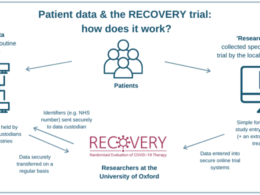institute for
digital and health transformation
(idht)
Joaquim Cardoso MSc.
Chief Research and Strategy Officer (CRSO),
Chief Editor and Senior Advisor
August 24, 2023
What is the message?
This article, published by The Clinical Trial Vanguard, affirms that the burden experienced by patients in clinical trials is a significant issue that demands attention.
Participants in clinical trials face various challenges due to complex eligibility criteria, numerous procedures, and protocol changes.
By streamlining procedures, simplifying eligibility criteria, engaging with participants, and embracing decentralized trial approaches, the pharmaceutical industry can reduce patient burden and enhance the feasibility and success of clinical trials while recognizing the dual nature of challenges and benefits inherent in trial participation.

One page summary:
In the landscape of medical research, the topic of patient burden in clinical trials has gained significant attention. This term encompasses the physical, emotional, and mental challenges faced by individuals participating in these trials. Recognizing and addressing patient burden is not only ethically vital but also pivotal for optimizing trial design and ensuring the success and authenticity of clinical research.
Root Causes of Clinical Trial Patient Burden
Clinical trial participants are not just data points; they are individuals with daily commitments and emotions.
Joining a trial often involves navigating complex eligibility criteria, adhering to demanding medication schedules, and undergoing invasive medical procedures. While essential for scientific accuracy, each of these elements contributes to the increasing burden experienced by patients in clinical trials.
Insights from Recent Research
Recent research by Ken Getz of Tufts sheds light on patient burden in clinical trials:
- Key Factors: The study highlights two primary contributors to patient burden: a higher number of procedures and intricate eligibility criteria. More procedures and complex criteria amplify the challenges faced by participants.
- Protocol Amendments: Trials with frequent protocol changes amplify patient burden. However, a noteworthy finding suggests that burden may decrease after seven or more amendments.
Factors Influencing Patient Burden
An increased number of procedures not only demands more time but also leads to physical discomfort and mental stress. Beyond the medical processes, waiting periods, recovery times, and the ongoing anxiety of trial visits exacerbate the burden. Similarly, while eligibility criteria ensure appropriate participants, overly complex criteria can make potential participants question their decision to join due to the associated risks and dedication.
The observation that trials with numerous amendments might result in reduced burden raises questions about potential reasons: improved streamlining of procedures or participants’ growing familiarity and resilience to trial demands.
Recommendations for Burden Reduction
Pharmaceutical companies aiming to prioritize participants’ well-being should consider several strategies:
- Procedure Streamlining: Identifying and consolidating redundant or unnecessary procedures can reduce burden.
- Simplified Eligibility Criteria: Clear and comprehensible criteria, supplemented with resources for clarification, can alleviate participant apprehension.
- Participant Engagement: Regular feedback collection and addressing concerns are crucial for burden reduction.
- Decentralized Clinical Trials: Embracing virtual or decentralized trials can enhance feasibility by leveraging technology for remote participation, minimizing clinic visits, and ensuring convenience and inclusivity.
Balancing Challenges and Advantages of Clinical Trial Participation
Clinical trials offer both challenges and benefits to participants. Acknowledging these dual facets is important:
- Voluntary Participation: Participants join trials through informed consent and retain the right to withdraw, emphasizing autonomy.
- Access to Novel Treatments: Trials grant access to innovative treatments not yet available to the general public.
- Comprehensive Medical Supervision: Rigorous medical attention in trials ensures safety and insights into participants’ health.
- Contributing to Medical Progress: Participation directly contributes to medical advancement, benefiting future patients and potential treatment breakthroughs.
In conclusion, patient burden in clinical trials is a critical concern that requires immediate attention. Addressing this issue ensures ethical treatment of participants and lays the groundwork for more participant-centric and effective trials.
Balancing burden reduction strategies with the acknowledgment of trial benefits is essential for shaping the future of clinical research.
DEEP DIVE

This summary was written based on the article “Reducing patient burden in clinical trials: how to make trials more feasible for patients”, published by The Clinical Trial Vanguard, on August 23, 2023 and written by Moe Alsumidaie.
To read the full article, access:












